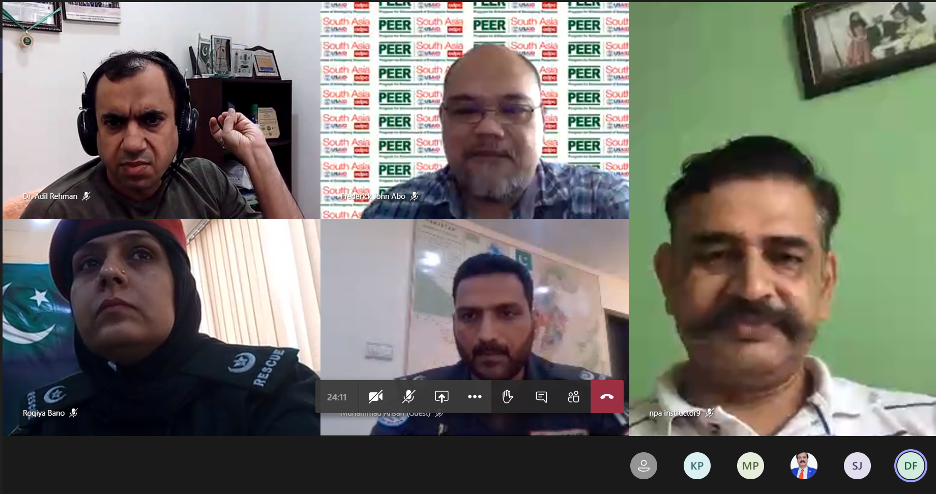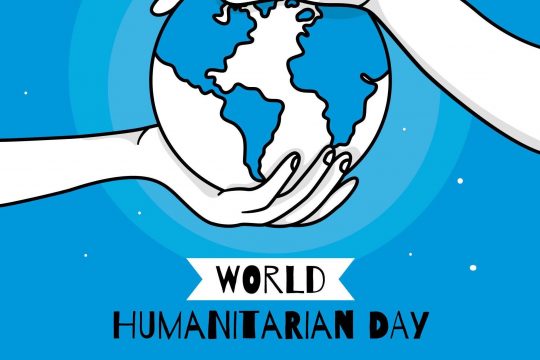
The Program for Enhancement of Emergency Response (PEER) has been implementing capacity building and training activities for more than two decades since the program was first introduced in Asia in 1998. Leveraging on the experience of a similar USAID funded capacity building program on emergency response in Latin America, the first courses on Medical First Responder (MFR) and Collapsed Structure Search and Rescue (CSSR) were brought to Asia with technical support from Miami Dade Fore Rescue Department. The courses were eventually adapted in the Asian context and piloted in Nepal, India, Philippines, and Indonesia.
As all PEER courses matured and had taken a foothold in the PEER countries with national partners, the courses of Hospital Preparedness for Emergencies (HOPE), MFR, CSSR, and Community Action for Disaster Response (CADRE) gradually are used as a standard for training first responders, rescuers, and hospital personnel. Recently the Swift Water Rescue (SWR) was piloted as one of the recent courses implemented under PEER.
PEER has embarked on the massive exercise to review, update, and adapt the curriculum at the national level. Pakistan, Nepal, Sri Lanka and Bangladesh are currently undertaking this exercise with the participation of national partners, technical institutions, and implementing agencies. The purpose of the PEER Curriculum review is to evaluate the effectiveness of the training after it has been implemented and reflect on how graduates performed and applied their learnings. This also includes what was missing or the gaps that graduates were not able to perform as part of their task in managing emergencies, including opportunities to address the need of first responders during pandemic.

The Technical Curriculum Review Groups (TCRG) – formed to facilitate this purpose in the countries propose modifications and changes in the curricula based on global and national standards available in the country. These TCRGs have been officially appointed by nodal agencies to facilitate the review process.
A few recommendations emerging from this process are highlighted below:
- Modifications on the number of instructors in the countries
- Make availability of HOPE course online, to facilitate institutionalization in the organizations and academies of partners
- Integrate updates on INSARAG guidelines in CSSR as a foundation training for INSARAG accreditation
- With the recent development of COVID-19, the groups recommended including Triage for communicable diseases; handling of dead bodies in line with WHO and IFRC guidelines on pandemics; strengthened protection for responders for MFR and CSSR courses during pandemic; and guidelines for isolation areas based on WHO recommendations; among others.
Representatives from the National Society for Earthquake Technology (NSET) Nepal, a longstanding partner with ADPC in implementing PEER courses in the region, also participated in the discussions and provided valuablefeedback and updates. Subject Matter Experts from the region such as Prof. Pradeep Vaidya, Col. Subash Thapa, DSP Arjun Prasad Timilsina, DSP Samir C. Kharel, Dr. Dipta, Mr. Harka Bhandari, DSP Amvica Joshi from Nepal TCRG; Mr. Muhammad Ashan, Dr. Adil Rehman from Pakistan TCRG; and Mr. Frederick John Abo, Chief of Party-PEER joined from Bangkok were invited to provide technical review and guidance on this process.
After the review, it is expected that the curriculum will be revised and updated using the agreed parameters and analysis. The curriculum review and revision are essential because they enable the program and its instructors to find ways of application on actual participants in a real-life situation. Moreover, the nodal agencies and technical institutions will officially endorse the revised curriculum to pave the way for the institutionalization of the PEER courses in the countries, ensuring quality control and adherence to global and national standards of emergency response.
ADPC’s PEER Stage-5 program is supported by the U.S. Agency for International Development, Bureau of Humanitarian Assistance (USAID BHA).


